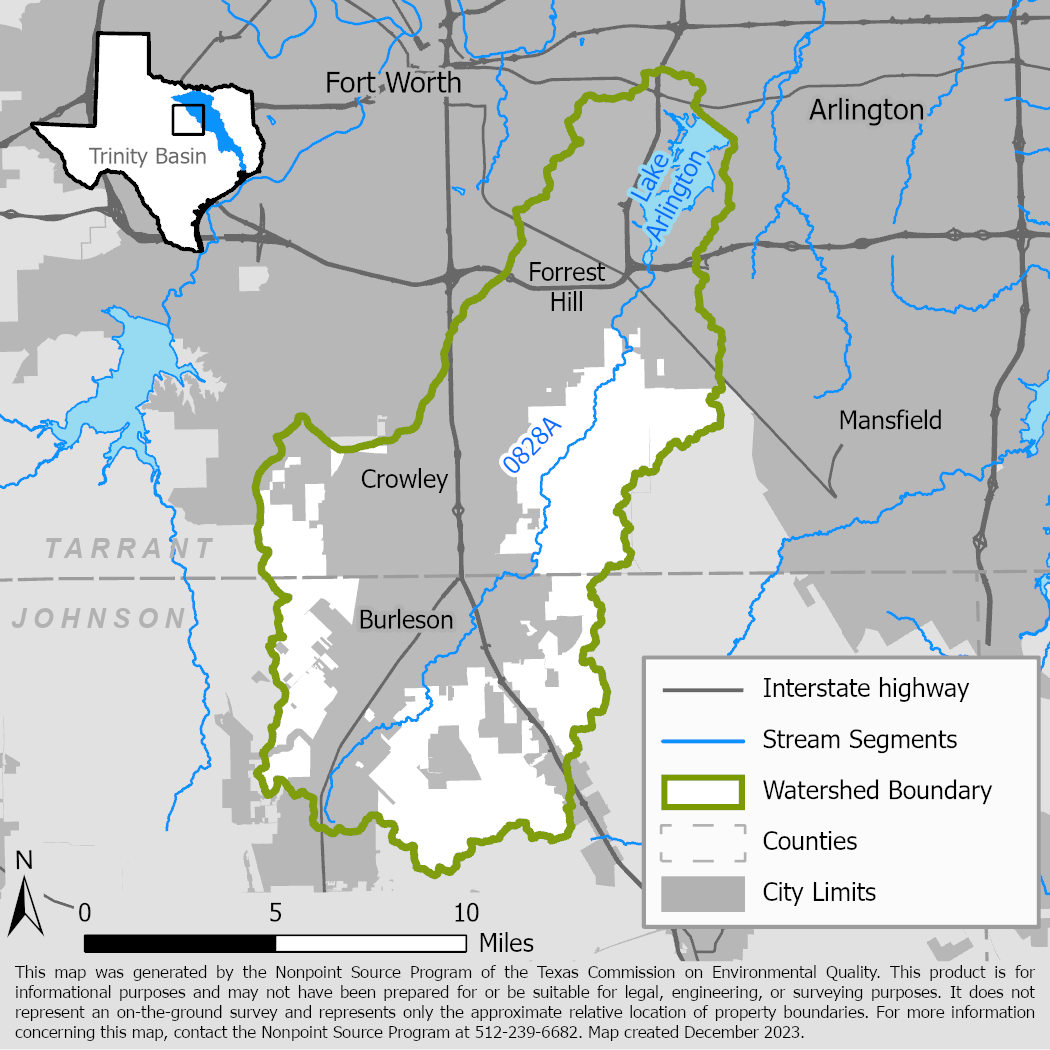Village Creek-Lake Arlington: Implementing a Watershed Protection Plan
This project will install one to four rain gardens to reduce the amount of bacteria entering Lake Arlington, and to determine the effectiveness of the rain gardens in reducing bacteria levels.

On this page:
Project Area
River Basin: Trinity
Water Bodies: Village Creek (0828A), Lake Arlington (0828)
Location: Tarrant County
Background
The Lake Arlington–Village Creek watershed is in the southwestern part of the Dallas-Fort Worth metroplex. It covers 143 square miles and supplies water to the cities of Arlington, Bedford, Colleyville, Euless, and parts of Grapevine and North Richland Hills.
Village Creek was initially listed on the 2010 Texas Commission on Environmental Quality Integrated Report for Surface Water Quality Section 303(d) for high concentrations of Escherichia coli (E. coli) bacteria that were more than quadruple the state standard. Lake Arlington has concerns for high levels of nitrogen and chlorophyll-a. Because of these impairments and concerns, starting in 2014 the Trinity River Authority coordinated the development of a watershed protection plan, which was accepted by EPA in 2019.
Project Description
September 2023 – August 2026
The goals of the project are to implement rain gardens to prevent E. coli in runoff from entering Village Creek, to assess the effectiveness of the rain gardens at preventing E. coli from entering the creek, and to provide residents with information about the construction and maintenance of the rain gardens.
Project personnel are analyzing existing data and consulting residents to determine the optimal placement for the rain gardens. Educational signs will be installed, and workshops will be held to inform residents about the purpose and benefits of rain gardens and similar constructions. Project personnel will also monitor water quality upstream and downstream of the rain gardens to determine how effective they are at decreasing the E. coli load entering the water bodies.
For More Information
Texas A&M AgriLife Research website.
To find out more about the NPS Program, call 512-239-6682 or email us at nps@tceq.texas.gov.

 Back to top
Back to top